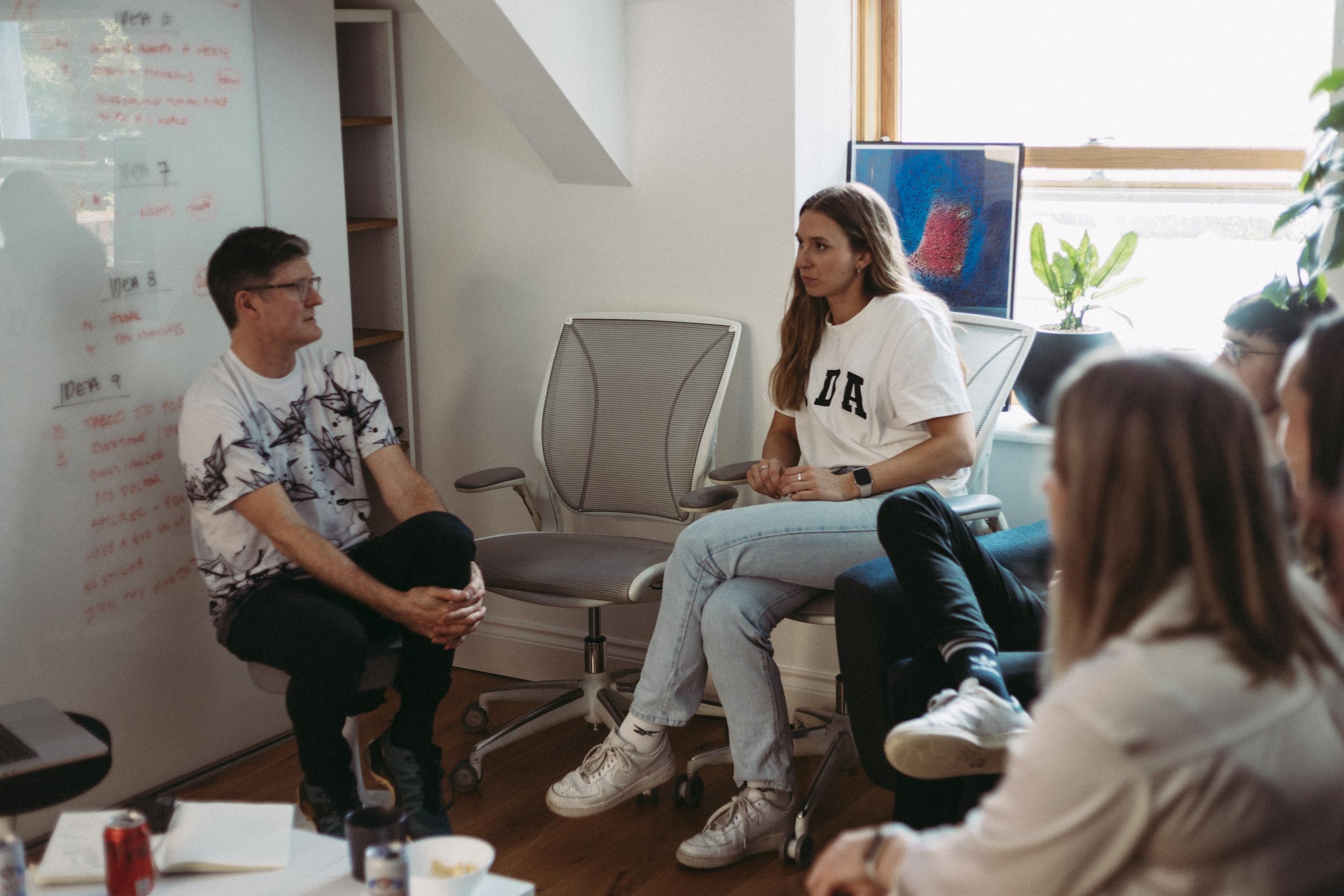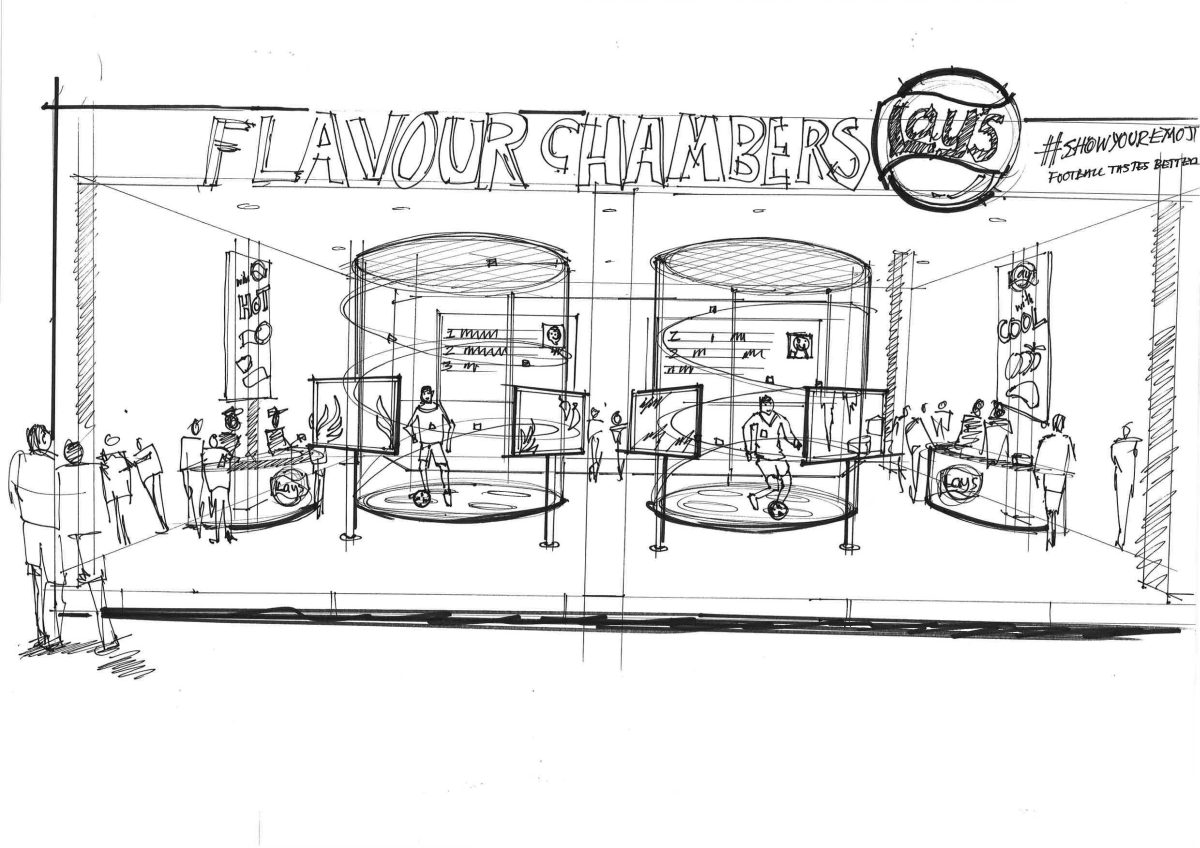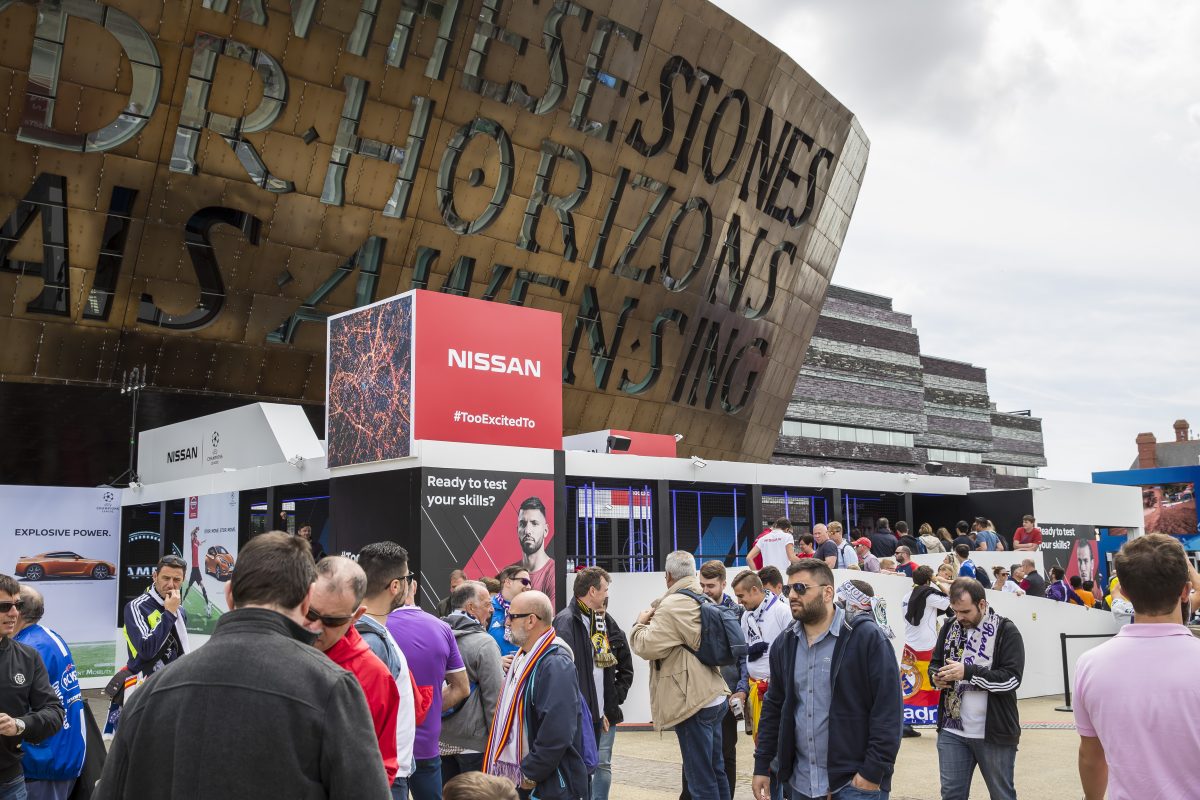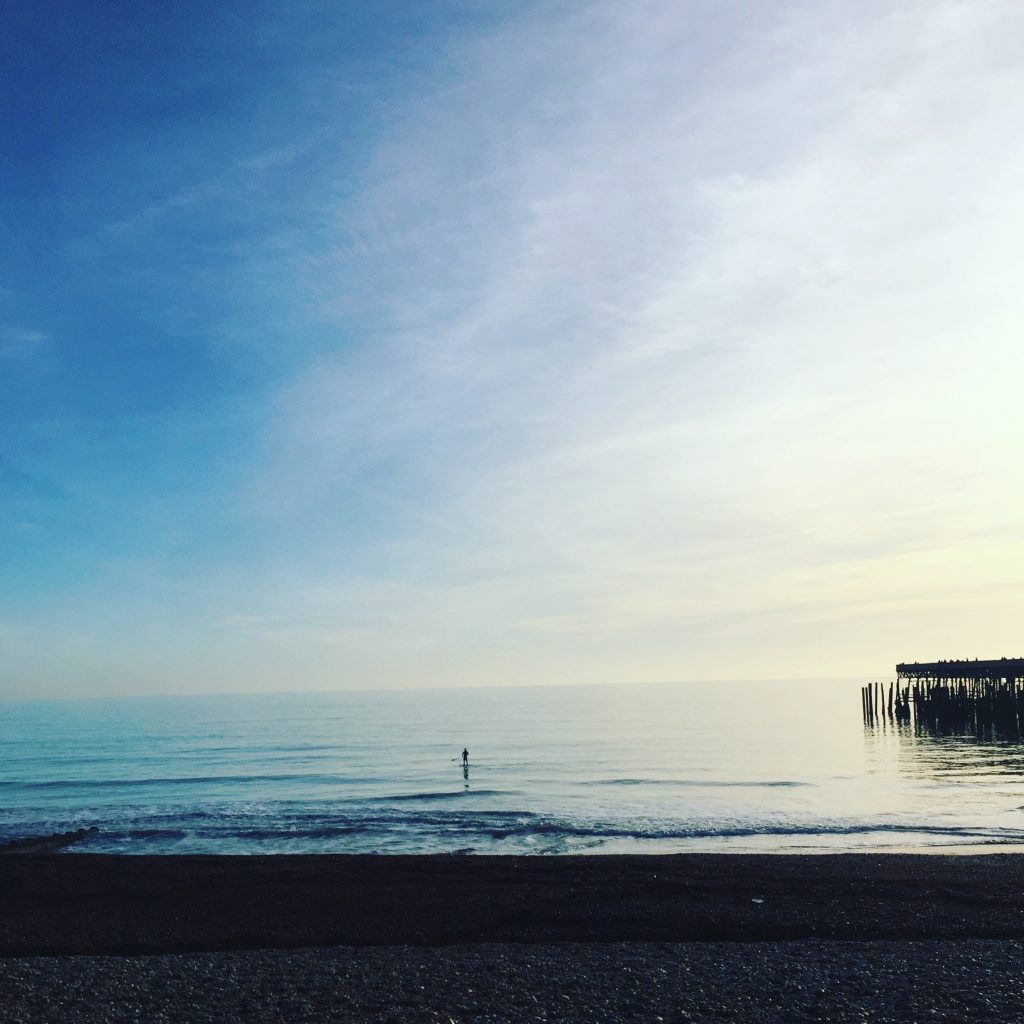The Four Sides of Creativity.
According to scientific researchers, there are four sides to creativity: Person (personality, habits, thoughts), product (the thing that results from creative activity), process (how you work) and press (environment factors, education and other external factors). 2LK Creative Director, Nick Glazier, gave LBB Online an insight into his creative life through these four elements.

Person
What kind of creative person are you?
Energetic, instinctive and curious. I’m an advocate of letting my mind wander and sketching my way to a solution! I can tolerate, and quite enjoy, the creative wrangle, where good ideas come as a reward for energy spent on all the bad ones. At 2LK we’re motivated by getting it right for our clients so are generous with our ideas and our time.
My creative upbringing involved working primarily in small teams – problem solving, making mistakes, and bouncing ideas around – I love the collaborative aspect of that early creative ideation stage. Conversely I’ve also had some of my best ideas while riding my bike, when the body is working and the brain supposedly isn’t!
Do you think creativity is something that’s innate or something you learn – why?
I believe creativity is 100% innate. Some say it gets educated out of us at school, we lose the ability to express ourselves and start overthinking. Add in self-censoring and we end up too worried about getting it wrong. Like a muscle, the creative mind needs nurturing and exercising with guidance from the wisdom of our ‘elders’ (the primary role of the educational experience).
How do you feel about routine?
Like most people, I need a balance between order and chaos – the two are not mutually exclusive – give me a routine where I can have the space to be disruptive!

Product
How do you assess whether an idea or a piece of work is truly creative? What are your criteria?
How do you judge true creativity? That’s similar to the recurring question from society which is: “But is it art?” If someone has made it, it’s 100% art! I can say I’m a sucker for work that triggers emotions (and not always happy ones), a feeling so strong that it makes you stop, reflect or question. It leaves you with a memory of the experience that can last days or even a lifetime. This inevitably makes a connection between the viewer and the work or brand that put it out there. Campaigns with a hard-hitting message that really cuts through the noise are another marker of truly great work.
Overall, what do you make of the industry’s creative output right now? What’s exciting you about it or frustrating you?
There is tons of great creative work out there, you just need to look harder nowadays to find it. The curious tension for me is, as our world fills up with more brands, more content, more communication, more activations and more visual matter, the less time we have to consume it. More brands than ever are pumping out mass content across multi channels. It’s intoxicating, addictive and all consuming. There is an undercurrent and current trend for simplicity. It can however, still be highly inventive and clever.
Modern audiences have less tolerance for ‘mediocre’ across the creative industry with many not really caring about brands. They do, however, care about what brands do and how they act. Do they give back somehow with a wider agenda than just ‘marketing’ and ‘selling’?
The opportunity for brands lies in employing ever more inventive ways to get attention, utilising all tools at their disposal, with creativity being the vessel to reach people in unexpected and quirky ways. Brands should play to their strengths in their storytelling, entertaining and being relevant for culturally specific audiences.

Process
How do you like to start a campaign or creative project?
Any great project/campaign starts with interrogating the brief, a deep dive into audience insights and embedding yourself in your subject matter. I push for as much ‘discovery’ time as possible to allow us to really get under the skin of the brief. Setting the conditions for this phase is vital by building in time and space for creativity to flourish. This is what gives a project the best chance of producing something outstanding.
Are there any tools or platforms (analogue or digital) that you find particularly helpful for gathering or iterating ideas?
I’m a huge fan of technology and am slightly addicted to virtual whiteboards like Miro and Mural to help with gathering, iterating and collaborating on creative problem solving. On the flip side, good old fashioned sketching is brilliant for speed – capturing what’s in your head and getting it onto paper in a rapid way.
Anish Kapoor said “all ideas grow from other ideas” and I love the honest sentiment behind this. On the basis nothing is 100% original apart from nature, let’s embrace the magpie in us all and build and develop new creative territories from what exists around us and what has been created before. The trick is to evolve our ideas no matter what the influence or starting point.
When it comes to the hard bits of a project, when you’re stumped, do you have a process or something you like to do for getting past those tricky bits?
Of course, all projects go through tricky times, when these strike I tend to put everything down, walk away from the desk, get out of the house, and start *moving (*cycling, running, walking, surfing etc) to unlock the ‘writer’s block’ syndrome. Like an analogue AI tool it can be tremendously powerful!

Press
Where did you grow up and what early experiences do you think sowed the seeds of your creativity?
I grew up in a sleazy seaside town, famous for a big battle around 1066, which I love! It’s become a whole lot more gentrified in recent years. I can’t express how much my hometown shaped me as an adult – from the people and community to the unique landscape of the coastline, it’s a great place for some serious creative day dreaming!
When it comes to your own creativity, what external factors can really help you fly, and what do you find frustrates you?
To kick off a piece of creative work I always push for a healthy amount of research time and exploration. There’s no cookie-cutter approach at 2LK, each project is bespoke so time to ponder, interrogate and ideate is critical to flush out the garbage and filter the creative consciousness.
I also quite enjoy the resulting time pressures further down the line which often have the effect of sharpening the mind and producing wonderful focussed outputs. That’s the beauty of working for a small, but perfectly formed, agency – agility.
I believe creativity can become predictable and mediocre if we play it safe and become satisfied with ‘good’ work. Our ambition should be to innovate and do something ‘great’ – new, exciting and playful.
What advice would you give to clients looking to get the best out of the teams and agencies they worked with?
My advice to clients would be: The more you put in the more you get out. Invest time in writing a robust and detailed brief, forge a good, genuine relationship with your agency, get to know us as people, and gain trust by creating a more level playing field. It’s a symbiotic relationship where we both need each other, so we must embark on this journey together – partnership is key.
How do you think agencies can best facilitate creativity in terms of culture and design?
I believe agencies can thrive by making creativity central to all they do, not being afraid to take risks, and continuing to look outside of their ‘agency sphere’ for guidance and inspiration. Inspiration often derives from the most unlikely places and cultural starting points – remain relentlessly curious.

Let’s talk.
If you’d like to discuss supercharging your brand experiences, contact us to make the most of moments that matter.
More reading:
The Art of Account Management
Lessons in Creative Leadership
Workstreams of the future: Creating agile enterprise events